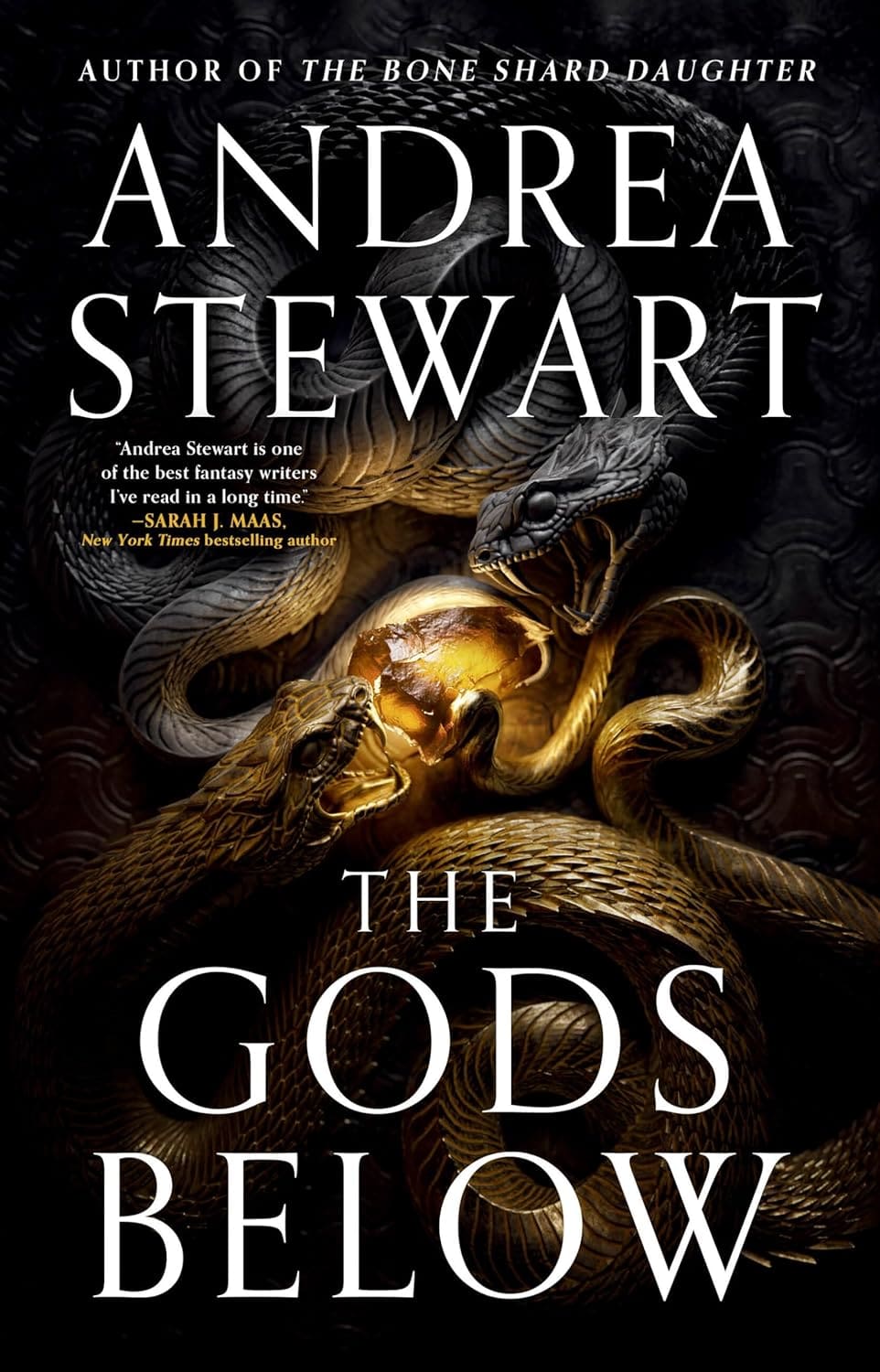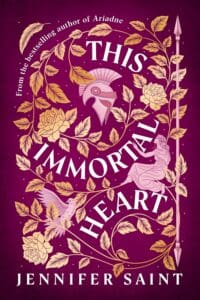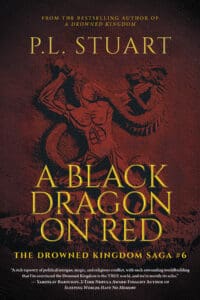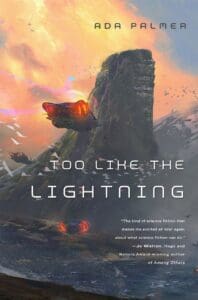
TL;DR Review: A singularly creative and fresh-feeling reading experience. An excellent start to a gripping new series.
Synopsis:
In this sweeping epic fantasy comes a story of magic, betrayal, love, and loyalty, where two sisters will clash on opposite sides of a war against the gods.
A divine war shattered the world leaving humanity in ruins. Desperate for hope, they struck a deal with the devious god Kluehnn: He would restore the world to its former glory, but at a price so steep it would keep the mortals indebted to him for eternity. And, as each land was transformed, so too were its people changed into strange new forms – if they survived at all.
Hakara is not willing to pay such a price. Desperate to protect herself, and her sister Rasha, she flees her homeland for the safety of a neighboring kingdom. But when tragedy separates them, Hakara is forced to abandon her beloved sister to an unknown fate.
Alone and desperate for answers on the wrong side of the world, Hakara discovers she can channel the magic from the mysterious gems they are forced to mine for Kluehnn. With that discovery comes another: her sister is alive, and only the rebels plotting to destroy the God Pact can help rescue her.
But only if Hakara goes to war against a god.
Full Review:
The Gods Below is a true standout in the fantasy genre, a book that feels fresh and new while still delivering a familiar emotionally devastating reading experience.
At its core, the story is about two things: the burden of expectations and the cost of ambition.
Half of the book follows sisters Hakara and Rasha. Hakara has done everything in her power to care for her younger sister, whatever it takes no matter how dangerous. But when she is separated from Rasha by a magical barrier and transformation that leaves her sister “altered”, she dedicates herself to earning enough to buy her way through the barrier at any cost. Ten grueling years of trying her hardest and holding herself to this impossible need to get to her sister weighs heavily on her. Nothing can get her out from beneath the suffocating, all-consuming burden that influences her every decision.
Rasha has lived under the expectation of being the smaller, weaker, younger sister in need of protection. Even ten years later, she is still struggling to break from those shadows. When the god Kluehn mocks her for being too weak and soft to survive the trials that will turn her into one of his “godkillers”, it sparks a flame within her and drives her to break free of the role. She will do whatever it takes to never be seen as “weak” again.
The roles into which these sisters have been cast are such powerful motivators behind their actions and choices. Yet their reactions will lead them down paths that may take them so far apart nothing, not even their love for each other, can bring them back together again.
The other half of the book follows Mullayne and his cousin Sheuan. Mull is an inventor who is driven by the burning need to follow the path an ancient hero took to the core of the world to petition the gods for a boon. In his mind, he does so to save his best friend—and unrequited love—from a degenerative disease, but to the reader, it is clear that it is his ambition that compels him to press on even when everything and everyone around him falls into darkness.
Sheuan has been raised to be the survival of her clan, a pawn trained by her mother and the mysterious Mitoran to be the perfect political, sexual, intellectual, and martial weapon. Though the ambition is external to her—a diametric opposite to Mull’s—it is no less a driving force that keeps her from making her own choices, leaving her a prisoner in her own life no matter how much she wishes for control.
The pursuit of these various ambitions—finding the gods and saving her people—lead both Mull and Sheuan to do things that go against their very nature, and both they and those they love will pay a steep price.
The characters are incredibly complex, flawed, and engaging from the very beginning. The strong narrative voice drives the action and character development forward at a relentless pace. The story and thematic elements are layered with a deft hand and clever subtlety that makes for a deeper-than-expected reading experience.
And the worldbuilding—I have yet to read a world quite as creative and unique as this!
It’s evocative of ancient China and Mongolia, complete with harsh deserts, lush forests, and elaborate, colorful cities filled with both indigenous people and refugees clinging to their traditions and customs in the face of cultural annihilation.
The war between the gods—as laid out both through the chapter openings and the lore recounted in the story—adds a lovely layer of complexity that amplifies the “fantastical” feel of this world.
It’s a singular, spectacular addition to the fantasy genre, and a brilliant introduction to a new series I can’t wait to continue exploring.








Leave a Reply